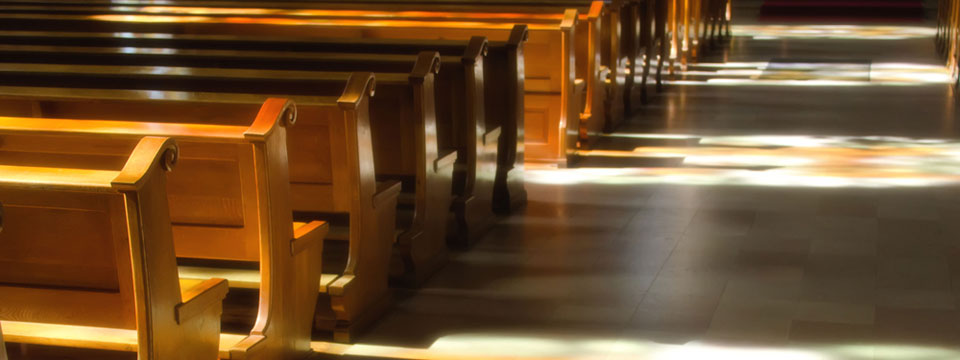
by Ryan Polk | Jan 19, 2015
From Ferguson to Cleveland to New York City, it has been a difficult few months in our country’s ongoing struggle with race. As the conversations, protests, and legal battles continue, Hollywood has entered the discussion with a powerful movie centered on Dr. Martin Luther King and the events that took place in Selma, Alabama in 1965.
Selma masterfully portrays historical attitudes and situations existing in much of the South, for which Selma was simply a sad but typical example. The movie also provides its viewers with a ‘behind-the-curtain’ look at the heroes of the Civil Rights Movement: Dr. King, Ralph Abernathy, Andrew Young, Diane Nash, and of course Coretta King who stood by her husband faithfully, despite fear and marital struggles.
Throughout the movie we also see the commitment of untold and unnamed thousands who had the courage to face severe repercussions to stand for something that was so painfully and obviously right. The plot of Selma is centered on the Civil Rights legislation that legally allowed full integration including voting rights.
Through technicalities, lack of enforcement, and sheer illegalities Southern municipalities had devised ways to keep blacks from registering to vote. The consequences of this were not only unjust but formed a powerful grip on the status quo. Without the ability to register to vote, Blacks could not vote out corrupt politicians or serve on juries which systematically failed to prosecute whites who had committed crimes against Blacks including the deadly succession of bombings of Black churches.
While I enjoyed the movie and highly recommend it to others, it was a hard movie to watch. Selma not only presented an historical biopic for the mind, but as good art always does, it compellingly and painfully reached the heart with the hurt of racism.
As a father of three daughters (two are bi-racial and one is full African-American) my heart sank when the bombing of the Birmingham church and the senseless killing of those six young girls was depicted. As a father of one son (who is bi-racial) my heart was saddened and angered over the portrayal of Jimmy Lee Jackson’s unwarranted and undeserved death at the hands of racist policeman.
The other side of the coin, however, is that Selma is inspiring, not in a sentimental way but in a real and biblically courageous way. To look at evil in the face and call it evil when the consequences will most surely be death is the epitome of courage. The courage of Dr. King and the others with him to make speeches, to march, to sit-in, to boycott, to go to jail, to always turn the other cheek, to never respond to violence with more violence is a king of courage rarely seen.
Dietrich Bonhoeffer once said, “Silence in the face of evil is evil itself: God will not hold us guiltless. Not to speak is to speak and not to act is to act.” Every generation has its own God-given opportunities for courage and faithfulness. The movie Selma and the heroes of the Civil Rights movement biblically encourage us to stand and speak for righteousness wherever we are.
Recommended Resources: – Selma review by Dr. John Piper www.desiringgod.org/blog/posts/selma
Books: Bloodlines: Race, Cross, and the Christian by John Piper
When Heaven and Earth Collide: Racism, Southern Evangelicals, and the Better Way of Jesus – Alan Cross
United: Captured by God’s Vision for Diversity – Trillia Newbell
Black and Tired: Essays on Race, Politics, Culture, and International Development – Anthony Bradley

by Ryan Polk | Nov 26, 2014
Ferguson, Mo. has been the epicenter of media coverage the past few days, as a grand jury delivered a decision to not indict Officer Darren Wilson in the shooting of 18-year-old Michael Brown, Jr. The aftermath of the grand jury’s decision has been frenzied, destructive and sadly predictable. Lost in the unmitigated media coverage, protests across the country, and the political posturing is a series of tragedies that requires faithful believers to examine our own hearts about many issues that have come to the surface from this event.
While there has been no shortage of opinions on Ferguson from the media, blogs and talking heads this is an issue that the church must acknowledge and speak to because when the protests end and the fires burn out the gospel is the only hope we have.
I am a white man who has lived predominantly around other white people, so from the beginning, I admit that there is much of this I don’t understand and will never understand. This must be recognized and admitted, but I am also a father of four adopted children, none of whom are fully white, and all are at least one half black…so my heart breaks over Ferguson and for so many other events of which I am unaware.
Ferguson was truly a tragedy in every sense imaginable. Forgotten in the politicizing, race-baiting, and racial responses is that a life was lost. A young man created in the image of God no longer reflects that image. A mother and father are experiencing the pain and hurt that most will never feel in losing a child. While these are the most profound, they are not the end of the tragedies.
A community feels victimized and betrayed by their government and law enforcement. While this is a source of great debate, nonetheless, it is the reality of their perception and leads to great hostility. Law enforcement feels blamed and criticized for simply doing their job of public service that often places them in danger. A country with a painful history regarding race relations and civil rights finds itself fractured once again. Blacks see what happened to Michael Brown, Jr. as a regular occurrence of police brutality and unfair treatment where blacks are the targets and police routinely get away with violent acts. Whites tend to see these events as isolated tragedies rather than examples of systemic problems and therefore do not understand the protests, violence, and riots done in response. Who is right? Probably some of both, though it is difficult for either side to see that.
When the fires burn out and the problems still remain, what the world needs to see is a racially-diverse church unified by the Gospel of Jesus Christ, offering hope in a seemingly hopeless world.
So, what can Christians take away and learn from Ferguson? Here are some thoughts:
- Racism is a reality. It is as old as Genesis 3 and will be with us until the Lord returns. To ignore it or to assume that it does not affect all us in some way is naïve at best and sinful at worst. To assume that our new birth eradicated all racist biases we might have is sinful as well. Each of us needs to look deep within our hearts, examine ourselves, and repent.
- Racism can be both active and latent. What are our attitudes as we watch what we see on the news? What do we think about when these events are brought to our minds? We have to be careful that we don’t think our consciences are clear on this issue simply because we don’t engage in overt racism. Latent racism that exists in our minds and thoughts is just as dishonoring to God.
- Our politically-correct culture is absolutely destructive towards encouraging dialogue and efforts that could move us in the right direction. Color and race is real and obvious to all and part of being created in the image of God. It can be talked about and needs to be.
- There were no winners and losers in what happened in Ferguson. We all lost, and we continue to lose when needless death occurs. The fact of the matter is that Michael Brown, Jr. did not need to die. Many decisions could have been made that would have kept that from happening. “Us v. Them” categories are not only unhelpful but inherently unbiblical for those of us who have been born again into God’s family. Our first responses should be empathy and sadness, not winning.
- While the answers are not simple, the statistical facts remain that black men are far often more targeted and more likely to be the recipients of violence from law enforcement than white men. They live with this fear (real or perceived) on constant basis. I’m grateful for the testimonies of Thabiti Anyabwile, Voddie Baucham, Anthony Bradley, and Eric Mason as they biblically and faithfully explain this.
- There have been many claims made about “the devaluing of black lives” or that “black lives don’t matter.” This is probably not completely unfounded, as our country’s history bears this testimony and those attitudes have not completely gone away. But this is part of bigger narrative. While incidents like Ferguson make the headlines and fill hours on cable news, the truth remains that greatest danger facing black males is not law enforcement or the justice system but other black males. Black on black violent crime is far more likely than mistreatment than law enforcement and is truly a devaluing of black lives. The only other place more dangerous for black men (and black women) is in the womb, as abortion has devastated the black community. This is certainly not standing up for the worth of black lives created in the image of God. More than 70 percent of babies born in the black community are born out of wedlock and will grow up in fatherless homes. This is the single greatest issue facing the dignity of black lives.
- Peaceful protesting to bring awareness to injustices and tragedy is not only a right we grant in this country but an important component in any movement of change. Looting, violence, and destroying your local communities, however, take away from the important issues and become issues themselves and must stop.
Observations are easy, but solutions are much harder. I agree with Dr. Eric Mason who recently said that “discipleship in the church must include a theology of unity (Eph. 4). We must dialogue about race without polarizing our need to love one another.” I worry for my son who will face things that I have never had to encounter. I don’t look forward to the talks we will have to have as he becomes a man about the world that awaits him. I long for the day when the black community will be led by and look to men like Thabiti Anyabwile, Voddie Baucham, Eric Mason, Anthony Bradley, and Lecrae rather than the self-appointed and self-serving men who are in prominent positions today. I listened to Al Sharpton the other day speak to how they were waiting on and needing the federal government to step in and fix this situation in Ferguson. But what Sharpton and all of us have to remember is the solution to this is the Gospel. So much of what we are observing, especially in the responses, are signs of hopelessness that only the Gospel can answer. When the fires burn out and the problems still remain, what the world needs to see is a racially-diverse church unified by the Gospel of Jesus Christ offering hope in a seemingly hopeless world.

by Ryan Polk | Nov 20, 2014
Earlier this year Ligonier Ministries commissioned Lifeway Research to survey what Americans believe about theology. Their study, ‘The State of Theology’, interviewed 3,000 people and asked them 43 theological questions ranging from beliefs about God, to salvation, and the afterlife. Stephen Nichols, chief academic officer of Ligonier Ministries, says the study was intended to “take the temperature of America’s theological health. They wanted to know how people in the pews—and people on the street—understand theology.”
Many Americans get the basics right, but they’re often fuzzy on the details, says Ed Stetzer, executive director of LifeWay Research.
“People like to believe in a generic Christian-ish god with cafeteria doctrines,” says Stetzer. “However, when we asked about harder beliefs—things that the church has and still considers orthodoxy—the numbers shift.”
Ligonier founder and chairman, R.C. Sproul, says, “What comes screaming through this survey is the pervasive influence of humanism.”
Here are some things that stand out from the survey…
- Most people know some about a lot of theological issues, but they don’t seem to know much about any.
- Evangelical Christians who attend church at least once a month scored the highest, that is their answers fell most closely in line with historic Christian orthodoxy. Even in this group, however, the scores were surprisingly low in what seem to be basic and fundamental theological categories.
- The survey showed that people do not like to take strong stands on absolute statements such as Jesus being the only way to salvation, hell as the judgment for lostness, the Bible as God’s perfect word, and others.
- The survey reflected an individualistic understanding of faith. Most people, including Christians, answered in a way that set themselves as their own authority for belief. The result of this is people will accept the parts of theology they like and will reject what they don’t like.
- As sociologist Christian Smith has long maintained, the American public equates Christianity with a ‘moralistic therapeutic deism’: There is God, He wants me to be a generally good person, He wants me to be happy, He will help me if I need help, and I will go to heaven if I’ve been a generally good person. This view is pervasive among Christians and non-Christians alike.
So what should we take away from the survey? What are the implications for the church, discipleship, and evangelism? Here are a few suggestions and ideas:
- The need is great for Christians to study the Bible and be taught the Bible.
- Churches and church leaders (pastors, elders, small group leaders, etc…) must not assume the people they lead believe the right things, believe them well, or can communicate what they believe. Assuming is a real danger.
- In a pluralistic culture where people have no problem with a vague and private religion, the need for apologetic and worldview training are just good but absolutely essential.
- Most people have religious opinions and beliefs even if they are wrong or inconsistent. These are the connections we need to make with them for evangelism and sharing the Gospel.
- American culture is becoming increasingly syncretistic, meaning people will accept what they like from many faiths and reject what they dislike. This means we must become skillful in communicating not only the Gospel but the implications of believing the Gospel.
- Compromising on hard issues (absolutes and exclusivity of Christianity) will never accomplish what we desire, even if our motives are good. Faithfulness to God and His word are the only things that will lead to the true good news of the Gospel.
For further reading about the survey, please visit:
www.ligonier-static-media.s3.amazonaws.com/uploads/thestateoftheology/TheStateOfTheology-Whitepaper.pdf
www.lifewayresearch.com/2014/10/28/americans-believe-in-heaven-hell-and-a-little-bit-of-heresy/
www.thegospelcoalition.org/blogs/trevinwax/2014/10/29/heres-where-your-neighbors-are-theologically/

by Ryan Polk | Nov 4, 2014
Word began to spread through social media over the weekend that Brittany Maynard, the 29-year-old terminally ill woman who had come to national prominence by announcing her intention to self terminate her life in light of her prognosis, had indeed ended her life. The reactions to Maynard’s decision were quick and numerous.
By some, she was hailed for her courage and choosing her own fate, and while others vilified her for selfishly taking her own life. Through all the noise of personal opinions, judgments, and laments it is amazing how quickly it is forgotten that a beautiful young woman died. A woman created in the image of God with and for a purpose is no longer alive.
There was a tragedy in this greater even than a diagnosis of terminal brain cancer. As a culture we have become numb to death which in turn has allowed us to grow far too comfortable with death. Today, our hearts should be heavy over Brittany Maynard. Not just her decision and how she made it, but that despite that decision she was unable to escape the inevitability of death.
I don’t know a single thing about Brittany Maynard’s belief in God or her relationship with Christ, and you don’t either. I write this as a Christian who is trying to consistently live out the teachings of the Bible in a fallen world which presents us with extremely difficult situations like Brittany’s. Here are some things for us to consider as try to think biblically about this…
Empathy
Many will disagree with Maynard’s decision to exercise her ‘right to die with dignity’ and think it is an unbiblical decision. I fall into that category. But no one should do so lightly or without the empathy and compassion that a person created in the image of God deserves. While I disagree with her, I do not think that choice is usually made lightly. It must be an agonizingly difficult place to feel as if you must choose to die now or die later.
Brittany’s cancer is a painful reminder that the world is profoundly not right. Her decision and the entire ‘right to die’ movement confirms this even more. These are not good things. Cancer is not good, and we should hate it. I hate it for Brittany Maynard, and I hate it for the members of my church who are currently fighting it or lost the fight. I hate my wife’s lupus and my mom’s diabetes, and I hate drunk drivers, tornadoes, and tsunami’s. They all serve as vivid examples that things are not right. Our response is not to sit back in judgment and prognosticate why these things are happening but to come alongside and love, cry, and minister.
What we know
As Christians, there are some things that we can know with certainty, even in circumstances that are hard for us to understand:
– We can know that we are not without hope even when facing death because this is not our home.
– We know that we are not omniscient (all-knowing) like God is especially about the future.
– We know there are things worse than dying in this world, namely that we would live here in such way that would separate us from God for all of eternity.
– We know that we don’t know how God can/might use our hardship.
– We know that life (both giving, sustaining, and taking) belongs to God and God alone.
Living life to the fullest
As I was reading this weekend about Brittany Maynard I came across the story of another young woman, Lauren Hill, a freshmen in college also diagnosed with brain cancer. Hill, a basketball player who was unable to continue playing because of the effects of her cancer, continues to live, and this past weekend courageously played basketball through the pain and scored the first and last baskets for her team. Her story has gone viral and has inspired millions, including from LeBron James to the thousands who came to watch her play. Very similar circumstances but very different perspectives and very different results.
I am always encouraged by the life of Joni Eareckson Tada. This is a woman who has suffered much over the years and, by all accounts, has stayed faithful to God and greatly used by God in that hardship. In responding to Brittany Maynard’s announcement of her plan to end her life because of her brain tumor Tada said, “I understand Brittany may be in great pain, and her treatment options are limited and have their own devastating side effects, but I believe Brittany is missing a critical factor in her formula for death: God.”
As believers, we need to be careful we don’t make the same mistake. It is far too possible for us to live our lives under our own lordship rather than the lordship of Christ. For followers of Jesus every part of our lives including our health, treatments, and yes, even dying is to be done for the glory of God. There is always more involved and more to be considered in this life than just myself. It is never just about me but it is always about how I honor Christ with everything He has given me, the good and the bad. This is the heartbeat of the crucified life.
God, in His wisdom and grace, has not left His church without guidance in this area. 2 Cor. 4:16-18 reminds while very real and often difficult and painful, what we endure in this world are momentary afflictions preparing something eternal for us. Paul did not write those words to try and minimize the hurt, tragedy, and pain this world regularly offers but instead encourages us and gives us hope that what is fundamentally wrong with this world will ultimately be made right through Jesus.
Romans 8:18 promises that what is endured here will not compare to what we will experience with God for all of eternity. As believers, we take that in faith and as an encouragement that is calling us to not only live well but to suffer and ultimately die well also. Unfortunately, the case of Brittany Maynard will probably not be the last one. There is, however, with every denial and rejection of God’s place in His world the opportunity for Christians to live out their faith in such a way that points to Jesus…even in how we die.

by Ryan Polk | Oct 23, 2014
Christianity is hard. Not too hard or overwhelmingly hard by God’s grace but difficult nonetheless. It’s hard because we have a fallen flesh that fights us, it’s hard because satan is working to destroy faith, it’s hard because of relationships, and it’s hard because we live in a confusing world. The biblical standard of the Lordship of Jesus Christ over every area of life is also hard. We know what it means to have a biblical worldview in the spiritual parts of our lives but what about the others? How do we live under his Lordship in the ‘everyday’ things of life? This is an essentially important question because it is the ‘everyday’ things like marriage, family, money, government, entertainment, art, law, etc… where we will have the most opportunities to connect people to the gospel. These are also the areas that we find being consistently attacked in our culture. Another area that we hear about in the media all the time yet often don’t connect with our Christian faith is the environment.
While we may not realize it, the environment is an issue that surrounds us every day. From massive recycling efforts, to ‘green’ energy products and policies, and the ever alarming prognostications about climate change and global warming we cannot keep this issue from being a part of our lives. The problem is that most Christians don’t consider the worldview that is behind this movement and these policies. With all due respect to Al Gore, ‘the inconvenient truth’ of environmentalism is based on a worldview that is inherently non-christian and most Christians don’t even realize it. Globalism, population control, and the devaluing of human life are only some of the concepts that drive the radical environmental agenda.
Demonstrating concern for the environment, caring for God’s creation, and striving to be good stewards of all that God has provided is not only a good thing but a biblical expectation. This is very different, however, than embracing environmentalism. When the ‘-ism’ is added, care for creation has gone beyond stewardship to a movement that exalts the created over the creator just as described in the book of Romans. This is the essence of the modern environmental movement and it is what Christians must recognize as the worldview that drives it.
This is a very difficult and nuanced subject that requires careful attention and detailed application of God’s word to God’s world. For this very reason, I am incredibly grateful for the Cornwall Alliance and its founder Cal Beisner. We need Christians who are faithful to God and His Word and who can winsomely speak with expertise in every area of culture including environmentalism. The Cornwall Alliance does exactly this. The Cornwall Alliance tries to “Our network of theologians, scientists, economists, and other scholars and leaders work together to promote, primarily through education, three things simultaneously:
- Biblical earth stewardship, or “godly dominion”—men and women working together to enhance the fruitfulness, beauty, and safety of the earth to the glory of God and the benefit of our neighbors;
- economic development for the world’s poor; and
- the proclamation and defense of the Gospel of Jesus Christ,
all in a world permeated by an environmental movement whose worldview, theology, and ethics are overwhelmingly anti-Christian, whose science and economics are often poorly done, whose policies therefore often do little good for natural ecosystems but much harm to the world’s poor, and whose religious teachings undermine the fundamental Christian doctrines of God, creation, humanity, sin, and salvation.
I am grateful that the Cornwall Alliance not only helps us understand the critical economic and scientific issues of environmentalism but also helps us to do so from a biblical perspective. This is something that evangelical Christians have not always done well. From Christian manifestos on the environment to books like “Green Like God” many evangelicals have bought in to the ‘greening of the church and the Gospel’ to the point that the their positions on the environment look very much like those who actually oppose biblical Christianity. This is often done without realizing the effects this will have on economics, government policies, the pro-life movement, etc…
Our church recently brought Dr. Beisner in for a Sunday where he taught on important but often neglected topics such as the myth of over-population and its implications, a biblical framework for environmental stewardship, the next generation science standards, and the realities of climate change. Our people truly enjoyed this and were biblically equipped to think rightly about this issue. One of the most impactful things Dr. Beisner said was that the radical environmental movement poses a significant threat to the church, the Gospel, and religious liberty. While other ideologies are dangerous to the faith, they are mostly external and recognized as a threat from the outset (think islam, atheism, secularism) but environmentalism creeps in slowly under seemingly good pretenses and often under supposed Christian teaching. This is why we must put creation care under the Lordship of Jesus and not let a good thing become the idol of an –ism.




